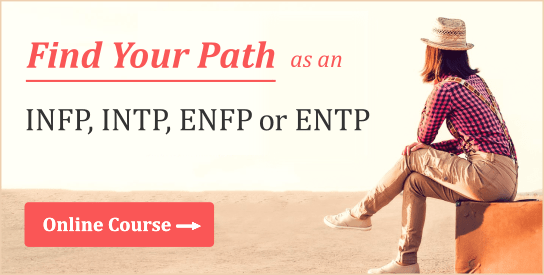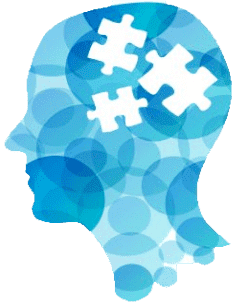
The NP types (INFP, INTP, ENFP, ENTP) are the most curious and open-minded of the personality types, scoring high on the Big Five personality domain called Openness (a.k.a., Openness to Experience). According to Wikipedia, Openness involves six primary dimensions:
- An active imagination
- Aesthetic sensitivity
- Attentiveness to inner feelings
- Preference for a variety of experiences
- Openness to new / different values
- Intellectual curiosity
Openness correlates modestly with IQ, creativity, and knowledge, as well as a willingness to explore and experiment with unconventional ideas and ways of life. In this post, we will explore some of the benefits and challenges associated with NPs’ characteristic openness.
The Benefits of Openness for NP Types
Openness paves the way for a broader and more diverse array of experiences. Being less apt to quickly judge or censor, open individuals explore a variety of interests, lifestyles, and perspectives. Openness works in concert with NPs’ concern for seeing the “bigger picture” and understanding how things are interrelated. Namely, the more of life’s puzzle pieces NPs can familiarize themselves with, the better their chances of grasping how everything fits together.
On a more basic level, NPs see openness as essential to keeping their lives fresh and interesting, a safeguard against common NP aversions such as:
- Boredom
- Feeling stifled or constrained
- Living a routinized or perfunctory life (e.g., “cog in a wheel”)
Indeed, this is why NPs rank variety and flexibility among their top priorities in both their work and relationships, as these afford them ample opportunities for new and interesting experiences.
Openness also goes hand-in-hand with NPs’ future-orientation. As we’ve discussed elsewhere, thinking about the future and all of its possibilities can be a life-giving, at times even magical, experience for NPs. In many respects, their openness and curiosity toward the future supplies much of the energy and fortitude they need to persist in their quest for a better life.
Challenges of Openness: Doubt & Uncertainty
While openness undoubtedly procures a great many benefits for NPs, it is not without its challenges. Salient among these is a propensity for doubt, uncertainty, and indecision.
Doubt can manifest in (and disrupt) any aspect of NPs’ lives, be it their careers, relationships, worldview, or life purpose. For some, this propensity can be debilitating, engendering a sense of aimlessness, paralysis, or even nihilism.
We shouldn’t be surprised by the fact that openness and doubt are close bedfellows. After all, making decisions or drawing conclusions demands that NPs shut down their openness in hopes of arriving at a place of closure.
Even in cases where NPs feel they’ve finally found the answer they’re looking for, it is usually only a matter of time before doubt begins creeping in. This can be frustrating for NPs since it feels like whatever they start will eventually be eroded by undercurrents of doubt.
Doubt can prove particularly cumbersome when NPs are wrestling with BIG questions or decisions. They often wonder how they can ever know with certainty they are making the right choice? The difficulty is that NPs can’t help but imagine alternative solutions or possibilities in nearly any situation. This, after all, is one of the signature roles of their highly imaginative function, Extraverted Intuition (Ne).
Eventually, NPs come to realize that they’re fighting against themselves. On the one hand, they really want to find a solution, or perhaps more accurately—THE SOLUTION—to their most pressing concerns. But they also feel compelled to explore all the options, all the angles, and all the possible outcomes. And in many respects, this is the stronger feature of their personality.
So how do NPs go about navigating these situations? One approach involves reiterating what we might call the “Seek-Doubt Cycle.” This occurs when NPs perpetually search for answers but doubt and uncertainty prevent them from achieving a final solution:
Seek Answers → Possible Solutions → Doubt → More Seeking
Another approach commonly used by NPs is avoiding or postponing decision-making as long as possible. In so doing, their hope is that, given enough time, the problem will somehow fade away or resolve itself. To other types (especially J types), this can seem like a cop-out, as NPs appear to be merely running away from the problem. While this may be true to some extent, NPs can be more willing than J types to trust the mysterious or unknown processes of life. Thus, from the NP perspective, the best outcomes aren’t always brokered consciously or intentionally, but often emerge spontaneously.
NPs may also attempt to overcome doubt through experimentation. If they’re unsure whether something (or someone) is right for them, doing a test run is one way of winnowing down their options and zeroing in on what they really want.
If you’re an NP looking to find yourself or your direction in life, we encourage you to explore our new online course—Finding Your Path as an INFP, INTP, ENFP or ENTP—specially designed to help clarify your personality, life purpose, relationships and career path as an NP type:
Related Posts:
How NPs Deal with Doubt & Indecision
How INFP, INTP, ENFP & ENTP Types Use Extraverted Intuition (Ne)

